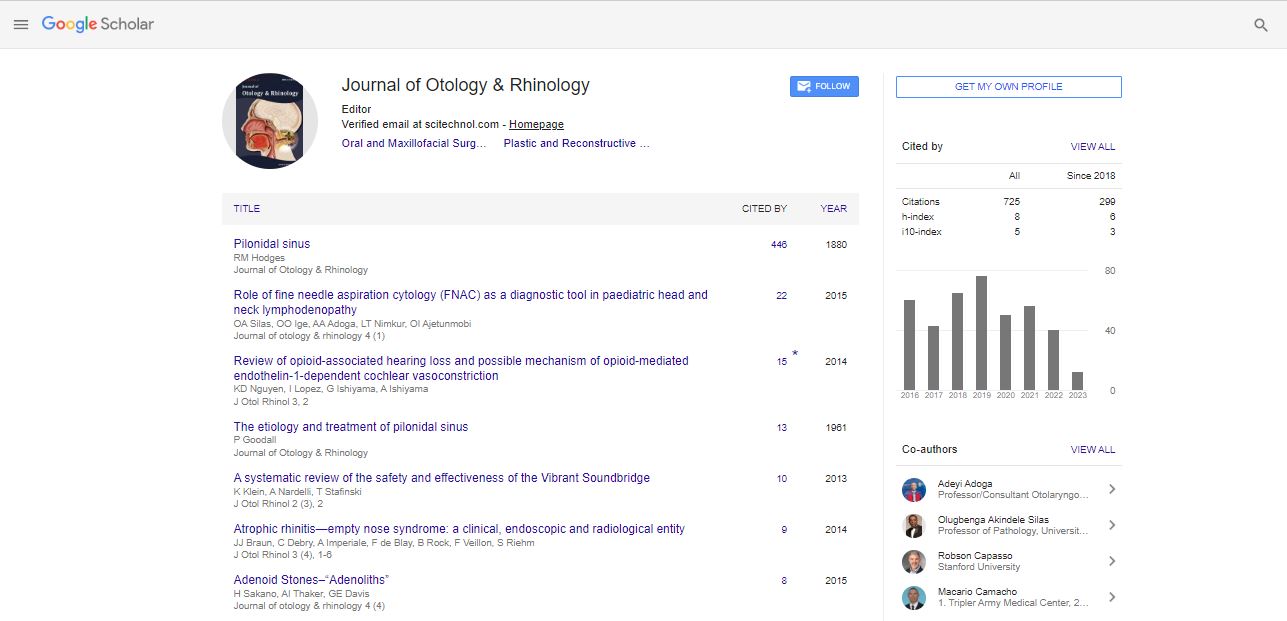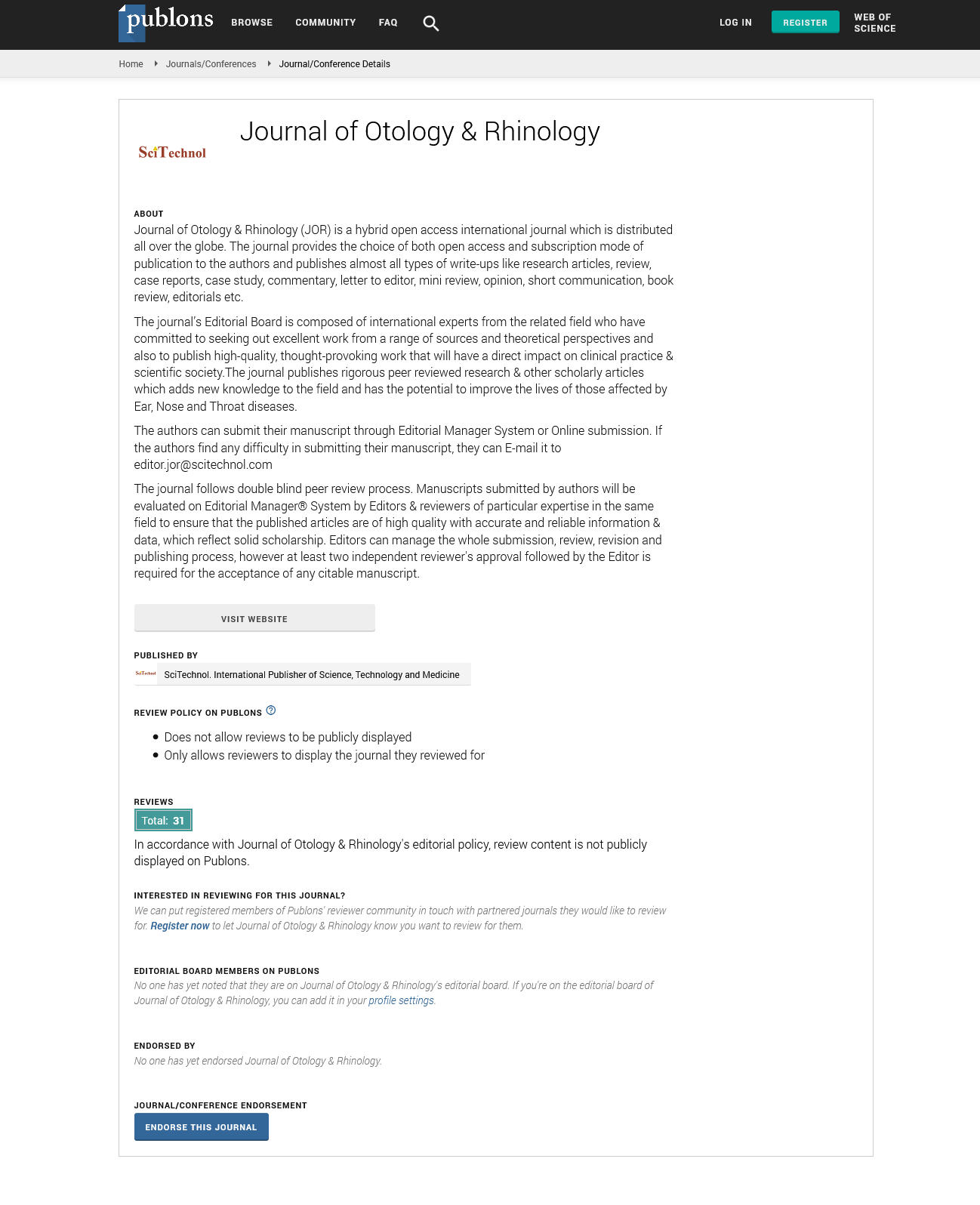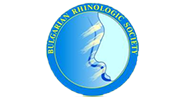Phonomicrosurgery for recalcitrant vocal fold lesions
Matthew S Broadhurst
Queensland Voice Centre, Australia
: J Otol Rhinol
Abstract
Introduction: The human vocal folds undergo a tremendous amount of soft tissue trauma. As such, they are susceptible to phonotraumatic lesions including nodules, cyst and polyp. These lesions arise from an acute event and can persist with varying degrees of hoarseness and impact on the individual’s occupation, productivity and social interactions. Achieving precise phonomicrosurgical resection in conjunction with carefully directed speech therapy provides patients with the highest chance of successful long term vocal rehabilitation. Methods: Consecutive patients presenting from 2008 to 2016 with phonotraumatic lesions were included. All patients had presurgery highdefinition videostroboscopy and completed the voice handicap index (VHI), singing voice handicap index (SVHI) when appropriate and voice-related quality of life (VR-QOL). Minimum patient follow-up was 6 months. Outcome measures were recurrence, requirement for revision surgery, improvement in the VHI, SVHI, VR-QOL and post-surgery videostroboscopy. Results: 280 patients were included (169 female). Complete data was available on 182 patients with the majority comprising teachers and singers. The VHI was substantially elevated pre-surgery and significantly lowered by subepithelial resection. Videostroboscopy showed substantial improvement in surface pliability and glottal closure following surgery. There were 2 recurrences and one patient subsequently developed a unilateral vocal fold polyp 18 months after initial surgery for nodules. Conclusion: Phonomicrosurgery with speech therapy can enable optimal vocal rehabilitation in patients with phonotraumatic lesions. Surgery can definitively restore vocal fold pliability and glottal closure translating to significantly improve if not normal phonation with long term success and negligible recurrence.
Biography
Matthew S Broadhurst is a Fellowship trained Laryngeal and Upper Airway Surgeon specialising in Laryngeal Surgery, Voice Restoration and Obstructive Sleep Apnoea. He returned to Brisbane, Australia from Boston, Massachusetts in 2007 having worked for 2 years at Harvard Medical School and Massachusetts General Hospital. He was the first fellowship trained Laryngeal Surgeon in Australia and now has a large tertiary referral practice in voice and larynx disorders and sleep apnoea. In his practice, he utilises state of the art techniques in surgery to the airway and is actively involved in clinical research and education both nationally and internationally. His areas of special interest and research include KTP laser for dysplasia and glottic cancer, short and long term management of vocal fold paralysis, phonotraumatic lesions in professional voice users and laryngeal papilloma.
E-mail: mattbroadhurst@mac.com
 Spanish
Spanish  Chinese
Chinese  Russian
Russian  German
German  French
French  Japanese
Japanese  Portuguese
Portuguese  Hindi
Hindi 


